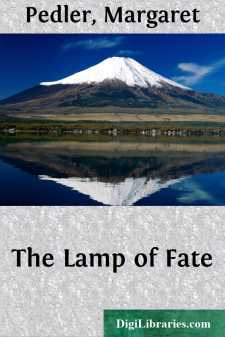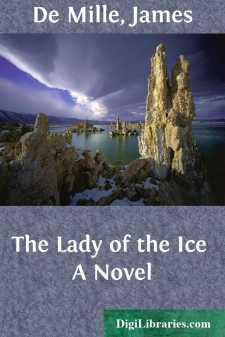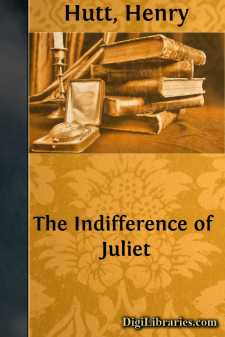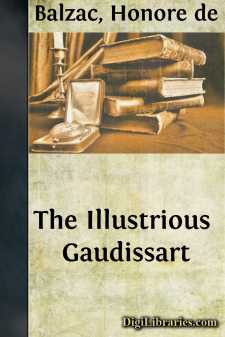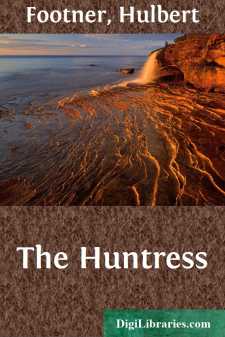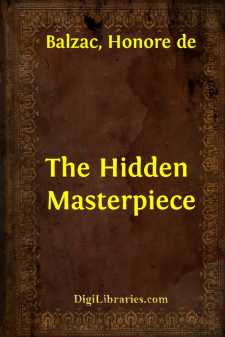Literary Collections
- American 84
- Ancient, Classical & Medieval 14
- Asian 1
- Australian & Oceanian 1
- Canadian 55
- Continental European 121
- English, Irish, Scottish, Welsh 179
- Essays 160
- General 24
- Letters 46
- Middle Eastern 1
Literary Collections Books
Sort by:
by:
John Burroughs
EMERSON AND HIS JOURNALS I Emerson's fame as a writer and thinker was firmly established during his lifetime by the books he gave to the world. His Journals, published over a quarter of a century after his death, nearly or quite double the bulk of his writing, and while they do not rank in literary worth with his earlier works, they yet throw much light upon his life and character and it is a...
more...
by:
Margaret Pedler
CHAPTER I THE NINTH GENERATION The house was very silent. An odour of disinfectants pervaded the atmosphere. Upstairs hushed, swift steps moved to and fro. Hugh Vallincourt stood at the window of his study, staring out with unseeing eyes at the smooth, shaven lawns and well-kept paths with their background of leafless trees. It seemed to him that he had been standing thus for hours, waiting—waiting...
more...
by:
Henry Harland
The Lady Paramount I On the twenty-second anniversary of Susanna's birth, old Commendatore Fregi, her guardian, whose charge, by the provisions of her father's will, on that day terminated, gave a festa in her honour at his villa in Vallanza. Cannon had been fired in the morning: two-and-twenty salvoes, if you please, though Susanna had protested that this was false heraldry, and that it...
more...
by:
James De Mille
CHAPTER I. CONSISTING MERELY OF INTRODUCTORY MATTER. This is a story of Quebec. Quebec is a wonderful city. I am given to understand that the ridge on which the city is built is Laurentian; and the river that flows past it is the same. On this (not the river, you know) are strata of schist, shale, old red sand-stone, trap, granite, clay, and mud. The upper stratum is ligneous, and is found to be very...
more...
PREFACE. An indistinct recollection of the very pretty little tale, called "The Bellows-Mender," suggested the plot of this Drama. The incidents are, however, greatly altered from those in the tale, and the characters entirely re-cast. Having long had a wish to illustrate certain periods of the French history, so, in the selection of the date in which the scenes of this play are laid, I saw...
more...
by:
Henry Hutt
I.—An Audacious Proposition Anthony Robeson glanced about him in a satisfied way at the shaded nook under the low-hanging boughs into which he had guided the boat. Then he drew in his oars and let the little craft drift. “This is an ideal spot,” said he, looking into his friend’s face, “in which to tell you a rather interesting piece of news.” “Oh, fine!” cried his friend, settling...
more...
by:
Honore de Balzac
CHAPTER I The commercial traveller, a personage unknown to antiquity, is one of the striking figures created by the manners and customs of our present epoch. May he not, in some conceivable order of things, be destined to mark for coming philosophers the great transition which welds a period of material enterprise to the period of intellectual strength? Our century will bind the realm of isolated...
more...
by:
Hulbert Footner
CHAPTER I From within the teepee of Charley Whitefish issued the sounds of a family brawl. It was of frequent occurrence in this teepee. Men at the doors of other lodges, engaged in cleaning their guns, or in other light occupations suitable to the manly dignity, shrugged with strong scorn for the man who could not keep his women in order. With the shrugs went warning glances toward their own laborious...
more...
by:
William Beckford
INTRODUCTION William Beckford, born in 1759, the year before the accession of King George the Third, was the son of an Alderman who became twice Lord Mayor of London. His family, originally of Gloucestershire, had thriven by the plantations in Jamaica; and his father, sent to school in England, and forming a school friendship at Westminster with Lord Mansfield, began the world in this country as a...
more...
by:
Honore de Balzac
CHAPTER I On a cold morning in December, towards the close of the year 1612, a young man, whose clothing betrayed his poverty, was standing before the door of a house in the Rue des Grands-Augustine, in Paris. After walking to and fro for some time with the hesitation of a lover who fears to approach his mistress, however complying she may be, he ended by crossing the threshold and asking if Maitre...
more...



